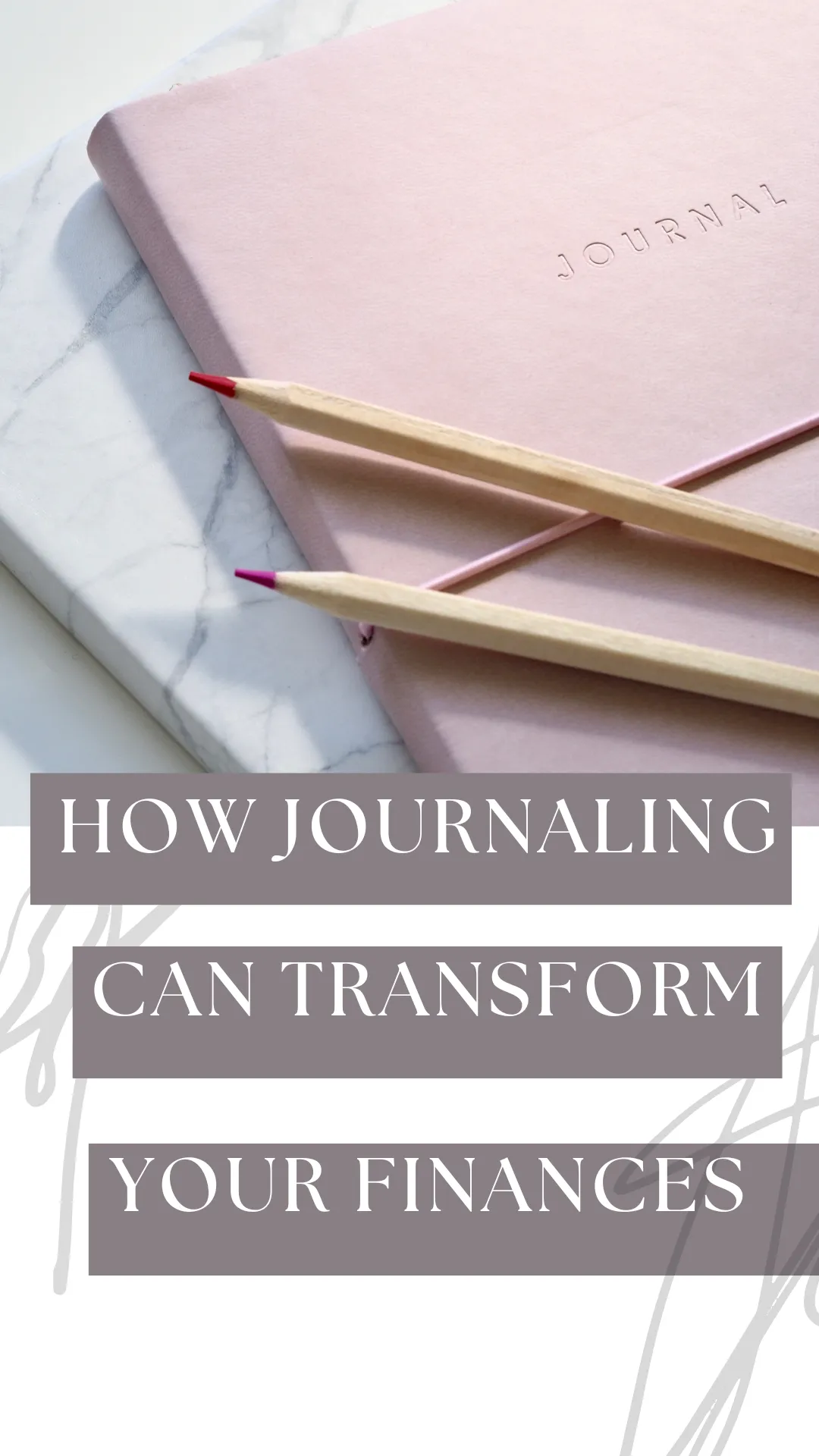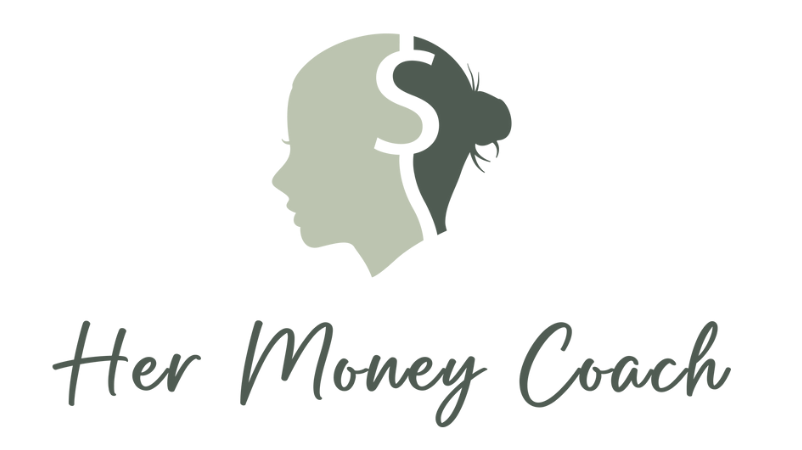
How Journaling Can Transform Your Finances
“Successful people ask better questions, and as a result they get better answers.” - Tony Robbins
Introduction:
How can a simple pen and a blank page possibly transform your finances? Seems far fetched doesn’t it? But, I promise you it’s not, it can really be the secret weapon in tackling tricky money situations.
Often when people face financial setbacks, they commonly encounter obstacles such as procrastination, overthinking, and self-doubt, which impede progress. Journaling offers a way to identify and address these issues and can restore clarity and confidence.

Journaling isn’t just about reflections or daily entries, but an approach to untangle the complex web in your brain. From the stress of debts and expenses to the clarity of goals and strategies, discover how something as accessible as journaling can change the way you think about and manage your money. When your brain is on overdrive, replaying financial setbacks on a loop, you struggle to focus, to find calm and creativity, which is exactly what journaling can help you do.
Dumping Out the Brain Bucket: Finding Clarity in Chaos
I’m using an analogy or visual of a brain bucket. Picture it like a container filled with blocks of thoughts and worries. Journaling is like tipping that bucket over, letting all those mental blocks spill out onto the page. Suddenly, what seemed like a jumbled mess in your mind becomes clear and manageable. You get to decide which blocks to keep (the blue ones) and which to toss aside (adios, red blocks). It's a liberating feeling.
In addition to the mental clarity that comes from journaling, there is a physical aspect. The mere act of holding a pen and pressing it against paper allows you to be very present. In Positive Intelligence, we call these moments of presence as being PQ reps, or you could think of them like mini mediations. It’s as easy as using your senses to become aware of your body which calms down your nervous system. In this case, you are just noticing the pen and the paper and the movement of you hand. This forces you to be in the moment which gives your brain permission to release all the thoughts it is having.
Writing Your Way to Freedom: Taking Charge of Your Money Story
You do not have to wait for someone else to grant you freedom from financial worries? With journaling, you hold the pen to your own freedom. Pour out those thoughts onto the page and watch as your worries lose their grip on you. Reclaim control of your money story and chart your course to financial peace of mind.
Sometimes we afraid of where our minds might go, and we can start to really get into our head. That was my problem. When I walked away from my failing business, my family was tired of hearing me talk about it all the time. They never said that, but in my brain I’m like, they don’t want to hear you talk about this business ever again. Like get over it.
And so I felt so alone. I again felt like I was unraveling. I couldn’t focus. It became such a distraction. But, when I really went back to the pages and just allowed myself to pour out onto them, it helped me to really see what was actually happening versus what I was telling myself.
It really helped my mind to just relax and to chill out.
When you’re going through a setback or failure your primitive brain is in fight or flight, it’s in survival mode and it’s terrified. Being able to journal out your thoughts and look at them is like looking at the contents of your brain with your brain from kind of an alternative perspective.
Navigating Confusion: Bringing Clarity to Chaos
When life throws you curveballs, it's easy to feel like you're lost in a maze of confusion. But you can use journaling to help you find your way out. By putting pen to paper, you bring order to chaos, untangling the knots in your mind and finding your way forward with newfound clarity.
Breaking the Chains of Isolation: Finding Connection Through Writing
When you are experiencing a set back, you can feel alone, I did. But, trust me, you're not alone. Journaling can provide a safe space to unload your thoughts and fears without judgment. It's like having a supportive friend who listens without interruption or criticism. So go ahead, pour your heart out onto the page – and be sure to stay judgment free. Don’t let your inner critic use this tool against you. It’s not a time for your inner critic to tell you how dumb you are, or a failure. This is a time to just get what’s in your brain out on paper, so you can see it and then decide what to think and feel on purpose.
Unraveling the Tangled Mind: Facing Yourself Through Writing
With journaling, you can unravel that knot, one word at a time. By facing yourself honestly and openly on the page, you gain insight into your true thoughts and feelings. It's a journey of self-discovery and self-acceptance that can be truly transformative.
Tactically, you can do the approach of a brain dump, putting all your thoughts on paper like we’ve been discussing. Or, you can use questions as prompts to getting you thinking about different topics. Good questions can lead to great answers, and you have all the wisdom you need inside you.
Harnessing the Power of Questions: Unlocking Deeper Insights
Motivational speaker and author, Tony Robbins says “Successful people ask better questions, and as a result they get better answers.” Questions are important, think about it, if you wake up each morning and ask yourself, “why am I broke?”. You would get answers like because... you're not smart enough, not educated enough, didn’t come from a rich family…on and on. BUT, if you ask yourself “how can I easily earn more money?” that question might generate answers like, I could start a side hustle, I could drive uber at night, I could ask for a raise, or find a higher paying job…. These questions lead to different thoughts that lead to different actions and ultimately different results.
By asking thought-provoking questions to yourself, you open the door to deeper reflection and insight. According to the study of Appreciative Inquiry, “a powerful question seeks to uncover and bring out the best in a person or situation. It is thought provoking, invites reflection and finding deeper meaning. It expands possibilities, brings underlying assumptions to light, and stimulates curiosity and creativity.
One of my favorite questions to ask myself is what four words best describe my money life right now and why? Because no matter what day of the week or month it is, I always have a different answer for this question and that answer helps me see my brain and what it’s offering me.
These kinds of questions reveal what I think about myself at that moment, what I believe about myself and then I can assess what’s true. Journaling exposes you to you. It puts you completely out on the pages. And you have no choice but to really face yourself.
This process can be very cleansing because there’s a lot that we don’t say out loud to other people. If we are feeling disappointed or frustrated, we can give ourselves space to unclog all those thoughts we have been hanging on to. It’s like somewhere to escape so that way it’s not housed inside of our bodies or in our minds, we can release it.
Embracing Vulnerability: Finding Strength in Honesty
Journaling isn't about painting a picture-perfect image of your life – it's about embracing the messy, imperfect reality. It's about giving yourself permission to be vulnerable, to express the full range of human emotions without fear or shame. So let go of the need to be "perfect" and instead, embrace the beautiful messiness of being human.
Be it business, money, friendships, relationships, be it whatever, journaling can give you a different vantage point.
There are times when we are consumed by our private thoughts of shame, insecurity or pain that you may not be ready to share with another human and just being able to sit down, unload it, can be freeing.
If you are afraid that the contents of your mind or the contents of what is going on in your brain is unsuitable for other humans to read it, and therefore, you don't want to write it down. You can always write it down and throw it away, but still write it down.
Or, you can also choose to be brave and bold and write out all of the chaotic things that come to your mind, and decide if someone else finds it, so what?
These words on paper are simply what is on your mind. And no one else has the power to use that against you. You don't want to write from a restricted place because you are not being honest with yourself.
Even if it’s scary, if it’s yucky if it’s just downright insane, let yourself write it without fear that someone’s ever going to find it and read it and use it against you. Write it as though you’re documenting your life because we’re not humans who have bright rainbow, sunshiny days every single day. All of our thoughts aren’t pleasant. They’re not always welcome, but they’re real.
Conclusion:
Now you know the transformative power of journaling, in navigating the many thoughts in your brain. Whether you're facing setbacks, seeking clarity, or simply looking to connect with your inner thoughts, journaling can be your guiding light. So grab that pen, open that notebook, and let your words pave the way to a more empowered future. Your journey starts here.
Legal Disclaimer: This content is not financial advice and is for informational purposes only. Always consult with a qualified financial professional before making any financial decisions.
